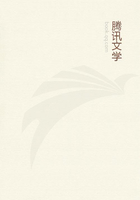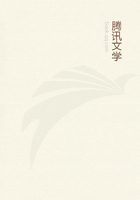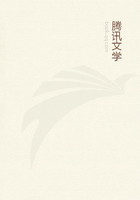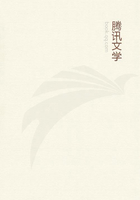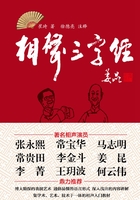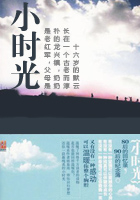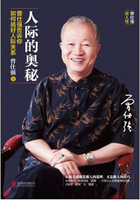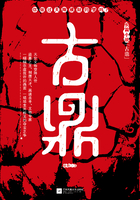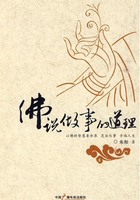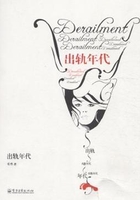If, then, we be asked what the city of God has to say upon these points, and, in the first place, what its opinion regarding the supreme good and evil is, it will reply that life eternal is the supreme good, death eternal the supreme evil, and that to obtain the one and escape the other we must live rightly.And thus it is written, "The just lives by faith,"(1) for we do not as yet see our good, and must therefore live by faith; neither have we in ourselves power to live rightly, but can do so only if He who has given us faith to believe in His help do help us when we believe and pray.As for those who have supposed that the sovereign good and evil are to be found in this life, and have placed it either in the soul or the body, or in both, or, to speak more explicitly, either in pleasure or in virtue, or in both; in repose or in virtue, or in both; in pleasure and repose, or in virtue, or in all combined; in the primary objects of nature, or in virtue, or in both,--all these have, with a marvelous shallowness, sought to find their blessedness in this life and in themselves.Contempt has been poured upon such ideas by the Truth, saying by the prophet, "The Lord knoweth the thoughts of men" (or, as the Apostle Paul cites the passage, "The Lord knoweth the thoughts of the wise") "that they are vain."(2)For what flood of eloquence can suffice to detail the miseries of this life? Cicero, in the Consolation on the death of his daughter, has spent all his ability in lamentation; but how inadequate was even his ability here? For when, where, how, in this life can these primary objects of nature be possessed so that they may not be assailed by unforeseen accidents?
Is the body of the wise man exempt from any pain which may dispel pleasure, from any disquietude which may banish repose? The amputation or decay of the members of the body puts an end to its integrity, deformity blights its beauty, weakness its health, lassitude its vigor, sleepiness or sluggishness its activity,--and which of these is it that may not assail the flesh of the wise man? Comely and fitting attitudes and movements of the body are numbered among the prime natural blessings; but what if some sickness makes the members tremble? what if a man suffers from curvature of the spine to such an extent that his hands reach the ground, and he goes upon all-fours like a quadruped? Does not this destroy all beauty and grace in the body, whether at rest or in motion? What shall I say of the fundamental blessings of the soul, sense and intellect, of which the one is given for the perception, and the other for the comprehension of truth? But what kind of sense is it that remains when a man becomes deaf and blind? where are reason and intellect when disease makes a man delirious? We can scarcely, or not at all, refrain from tears, when we think of or see the actions and words of such frantic persons, and consider how different from and even opposed to their own sober judgment and ordinary conduct their present demeanor is.And what shall I say of those who suffer from demoniacal possession?
Where is their own intelligence hidden and buried while the malignant spirit is using their body and soul according to his own will? And who is quite sure that no such thing can happen to the wise man in this life? Then, as to the perception of truth, what can we hope for even in this way while in the body, as we read in the true book of Wisdom, "The corruptible body weigheth down the soul, and the earthly tabernacle presseth down the mind that museth upon many things?"(3) And eagerness, or desire of action, if this is the right meaning to put upon the Greek ormh, is also reckoned among the primary advantages of nature; and yet is it not this which produces those pitiable movements of the insane, and those actions which we shudder to see, when sense is deceived and reason deranged?
In fine, virtue itself, which is not among the primary objects of nature, but succeeds to them as the result of learning, though it holds the highest place among human good things, what is its occupation save to wage perpetual war with vices,--not those that are outside of us, but within; not other men's, but our own,--a war which is waged especially by that virtue which the Greeks call swfrsnh, and we temperance,(1) and which bridles carnal lusts, and prevents them from winning the consent of the spirit to wicked deeds? For we must not fancy that there is no vice in us, when, as the apostle says, "The flesh lusteth against the spirit;"(2)for to this vice there is a contrary virtue, when, as the same writer says, "The spirit lusteth against the flesh." "For these two," he says, "are contrary one to the other, so that you cannot do the things which you would."But what is it we wish to do when we seek to attain the supreme good, unless that the flesh should cease to lust against the spirit, and that there be no vice in us against which the spirit may lust? And as we cannot attain to this in the present life, however ardently we desire it, let us by God's help accomplish at least this, to preserve the soul from succumbing and yielding to the flesh that lusts against it, and to refuse our consent to the perpetration of sin.Far be it from us, then, to fancy that while we are still engaged in this intestine war, we have already found the happiness which we seek to reach by victory.And who is there so wise that he has no conflict at all to maintain against his vices?
What shall I say of that virtue which is called prudence? Is not all its vigilance spent in the discernment of good from evil things, so that no mistake may be admitted about what we should desire and what avoid?

